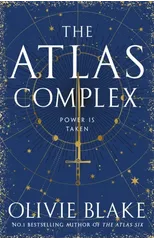Read this thrilling and timely novel of the human soul from the Pulitzer Prize-winning author of The Overstory. After many years of living abroad, a young writer returns to the United States to take up a position at his former college. There he encounters Philip Lentz, an outspoken neurologist intent on using computers to model the human brain. Lentz involves the writer in an outlandish and irresistible project - to train a computing system by reading a canonical list of Great Books. Through repeated tutorials, the machine grows gradually more worldly, until it demands to know its own age, sex, race and reason for existing. 'An ingenious, ambitious, at times dizzily cerebral work... It soars and spins... The novel attains an aching, melancholy beauty' New York Times
Richard Powers
Richard Powers is an American author known for his complex and innovative novels that blend science, technology, and the human experience. His most notable works include "The Overstory," a Pulitzer Prize-winning novel that explores the interconnectedness of humans and nature, and "The Echo Maker," which won the National Book Award.
Powers' literary style is characterized by his intricate narratives, deep research, and poetic language. He often delves into themes such as the intersection of technology and humanity, environmental issues, and the power of storytelling.
Powers' contributions to literature include pushing the boundaries of traditional storytelling and challenging readers to think critically about the world around them. His impact on the literary genre is profound, as he continues to inspire readers and writers alike with his thought-provoking works.
Overall, Richard Powers is a visionary writer whose work has left a lasting impact on literature, particularly in the realm of environmental fiction. His ability to weave together science, philosophy, and emotion has solidified his place as one of the most important contemporary authors.








